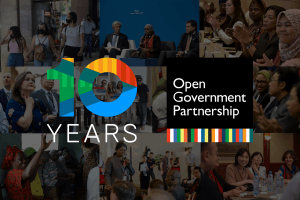
10 Years of OGP
Ten years ago reformers inside and outside government launched OGP – a simple yet distinct way to join forces to create transparent, participatory, inclusive, and accountable solutions
When eight governments and nine civil society leaders launched OGP in 2011, no one expected it to reach its current size and scope. Over the last ten years, however, OGP has grown in ways that have exceeded expectations. Governments and thousands of civil society members have, together, co-created nearly 5,000 commitments across more than 350 action plans in 77 countries. These commitments have changed how the governments work, despite a global political environment increasingly hostile to openness.
OGP’s tenth anniversary provided an opportunity to reflect on and highlight the progress the Partnership has made–and, importantly, start laying out an ambitious agenda for the coming years. OGP’s successes have been well documented, further validating its unique approach to achieving greater, sustained open policies and practices.
Research including an independent developmental evaluation that started in 2019, the OGP Vital Signs report, and the OGP at Ten: Toward Democratic Renewal report, show that the OGP model works: when governments and civil society come together to co-create action plans with concrete, ambitious commitments that are independently assessed, it leads to more open governments, better policies, and improvements in people’s lives. Civil society is increasingly involved in the action plan process, and this is linked to better outcomes with stronger action plans and results.
OGP action plans now cover more policy areas than ever before. This sheds light on both an increasing degree of need and the import of ongoing reassessment of strategy and areas of focus. OGP’s developmental evaluation looks at specific strategies and elements of how OGP works, and validates the importance of political advocacy, peer-to-peer exchange, trust-building and relationships with actors, and technical and financial support in driving open government reform.
The combined insights gathered throughout 2021 will provide a strong basis for co-creating OGP’s new strategic plan, including laying out ambitious strategies, choices, and tactics for the full Partnership, including the OGP Support Unit. The plan will be developed throughout 2022, and launch in early 2023.
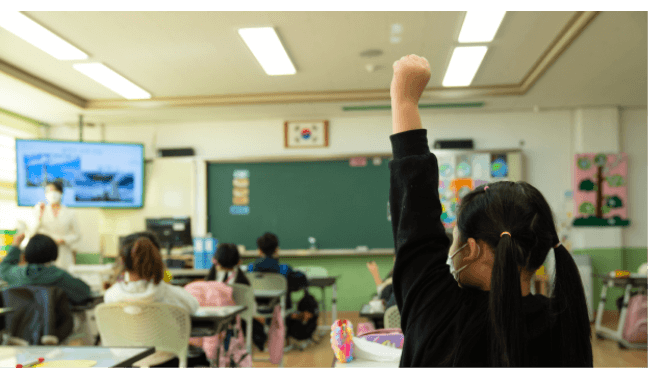
OGP members continue to tackle a confluence of global challenges, including deeply-rooted issues related to gender, anti-corruption, civic space, justice, health and education, and ever-growing threats to democracy, among others, including through 72 new national and local action plans submitted in 2021. Like all communities and sectors over the past two years, many of OGP’s efforts were measurably impacted by the COVID-19 pandemic and the OGP Support Unit continued to adapt to COVID-19 restrictions through several means.
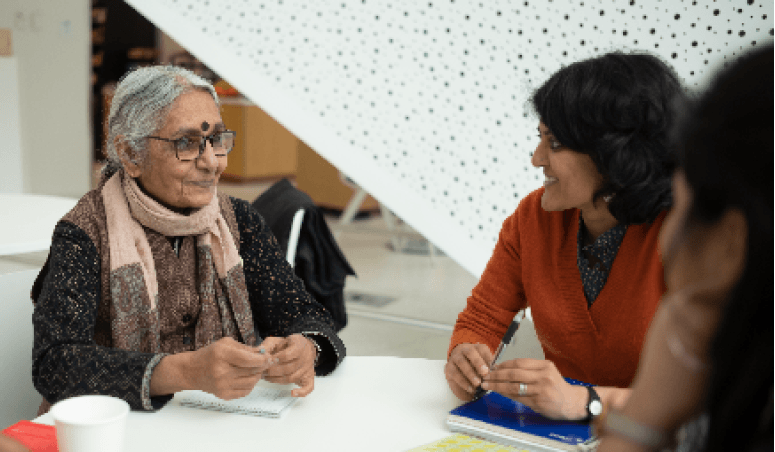
The OGP community had an ambitious agenda for OGP’s tenth year to maximize opportunities on the global stage for open government. This included an expanded campaign on how countries are tackling the ongoing COVID-19 pandemic, including through high-profile events such as Open Gov Week. OGP also strengthened its unique role as a connective tissue between big global moments, spotlighting the centrality of open government in advancing global norms and ensuring that country reformers’ voices and experiences are elevated to the global stage. These conversations, including on civic space and public participation, anti-corruption, and digital innovation, were amplified at the OGP Global Summit from December 15-17, 2021.
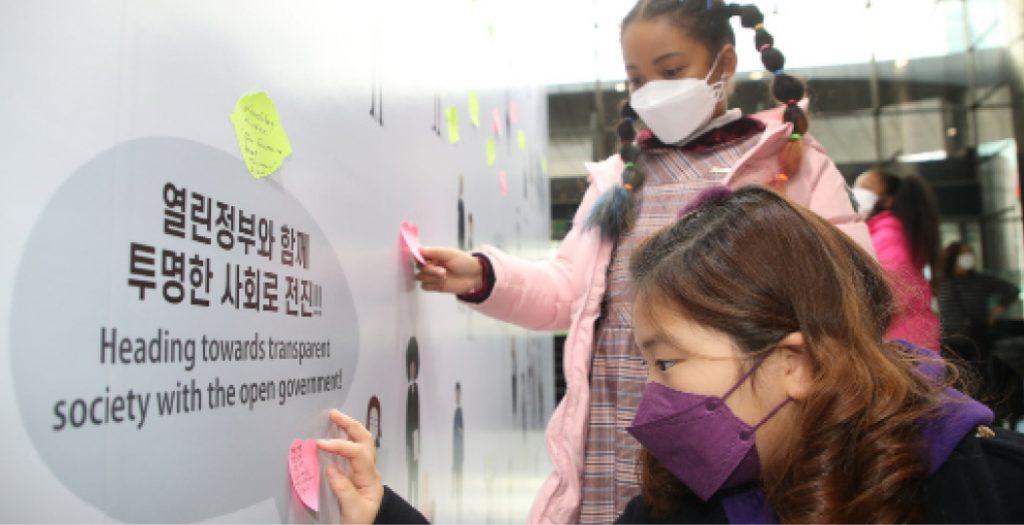
This past year continued to reaffirm the significance of OGP’s work in advancing greater openness among various policy areas and across themes, including successfully leading on issues related to civic space, anti-corruption, and digital innovation. However, increasing threats to democracy and other pressing and rapidly-changing global challenges also underscored the importance of continuous improvement – and setting even bolder, more ambitious commitments and finding new ways for members to engage and learn from one another.
2022 will be another important year for OGP as many member countries embark on implementing bolder, even more challenging action plans, with an additional 80-plus co-creation processes planned. To keep pace with this momentum, the OGP Steering Committee Co-Chairs, the Government of Italy and Aidan Eyakuze, Executive Director of Twaweza East Africa, have laid out an ambitious agenda for 2022 to further incentivize country-level action, leverage global and regional fora, and lead OGP into its second decade.
In tandem, the OGP Support Unit is embarking on a strategic refresh for a new five-year strategy to be developed in consultation with the community, and to be launched in January 2023, as the current three-year implementation plan (3YP) sunsets at the end of 2022.
Evidence from OGP’s first ten years also highlights a number of systemic challenges that the Partnership must continue to address in coming years, including: a slight global decline in the ambition of commitments; barriers to implementing commitments, particularly in lower-income countries; and a global decline in civic space impacting the majority of OGP member countries, made further difficult by a lack of commitments that address civil liberties and public accountability. The first ten years also highlight a wide range of competing demands faced by the OGP Support Unit, including how it can sustain the appropriate level of focus on focus countries, themes, and commitments while also continuing to meet the needs of all members in the Partnership.
OGP will be refining and exploring modifications to its processes as part of the 2022 strategy refresh, including: seeking ways to elevate OGP as a platform for domestic action on the global stage; expanding coalitions through strategic partnerships and network-building; stepping up implementation support; and increasing peer support and learning. In light of increasing challenges to democratic freedom of OGP members, expanding and protecting civic space will be a particular focus, including building the Civic Space Learning Network. The OGP Support Unit will also explore innovative new models to assist country-level reformers, including: the expansion of OGP Local; exploring targeted support for certain sub-regions, such as the Eastern Partnership and Francophone Africa; and increasing capacity for individual reformers through the newly launched Open Government Leadership Collaborative (OGLC), which focuses on building skills in collaboration, advocacy, and consensus building at the domestic level.
All of OGP’s budgets, audit reports, and other financial information are available online. All figures below are in US dollars.
| Total Revenue (actual) | Total Expenses (actual) |
| $16,707,806 | $11,928,885 |
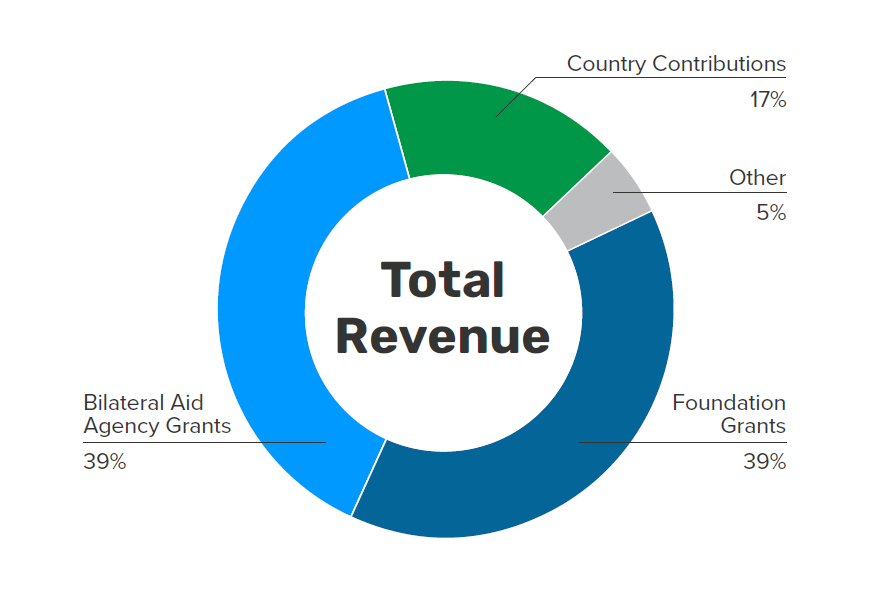
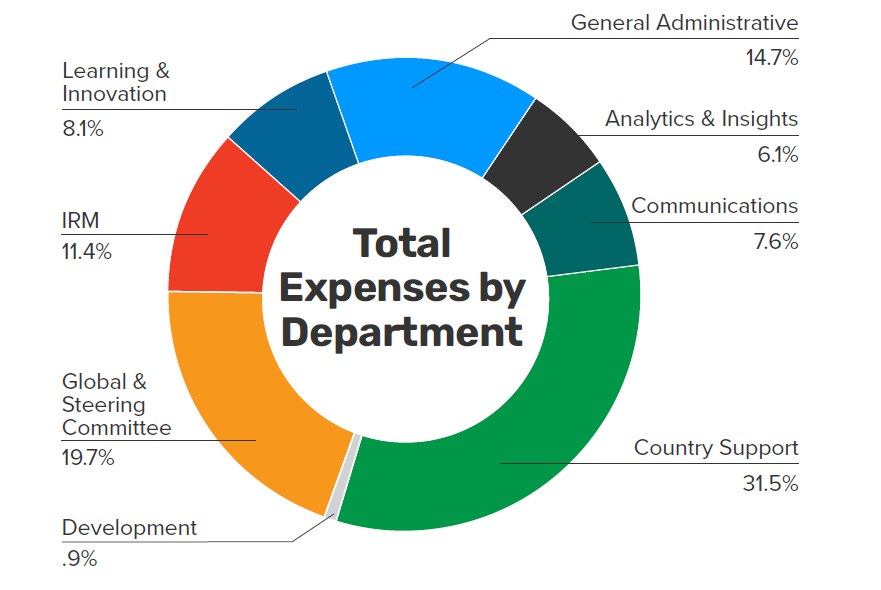
2021 Funders
All data in this Financial Transparency section are based on statements as of March 23, 2022.
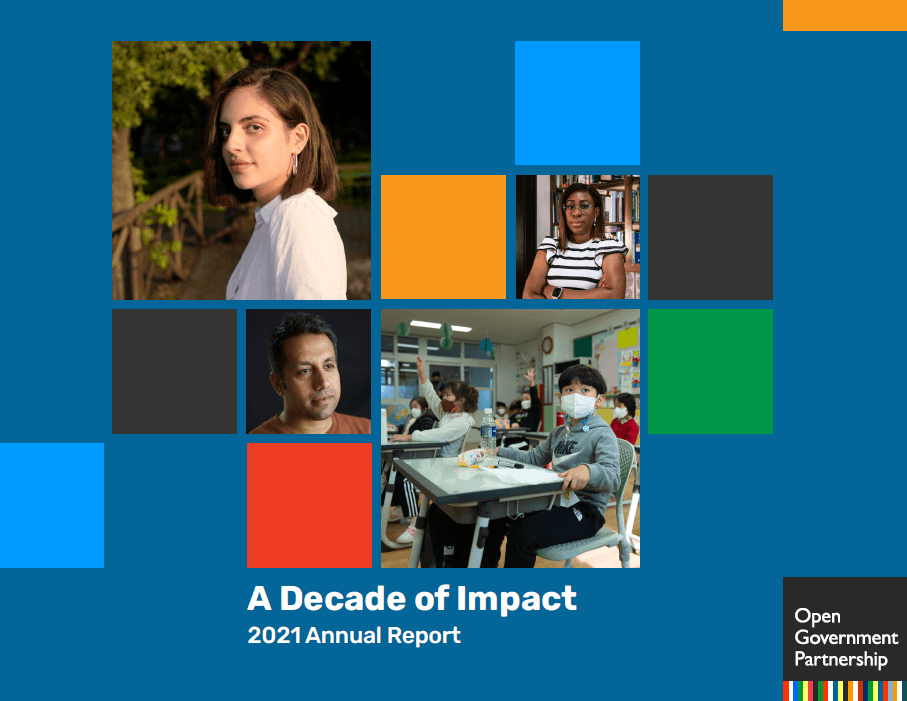
Download the complete 2021 Annual Report here.
Click here for more information about the Open Government Partnership's terms of use.
Terms & Conditions Close